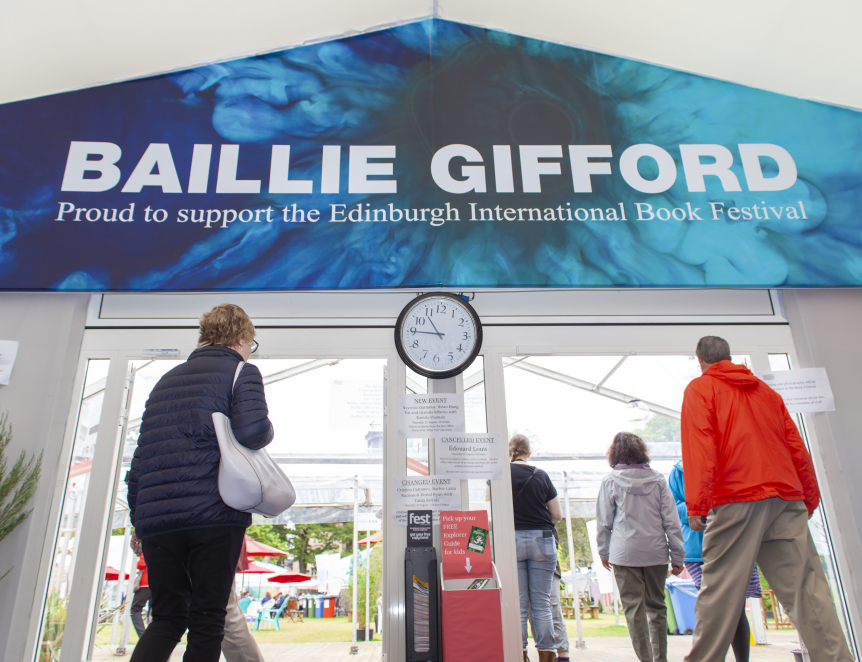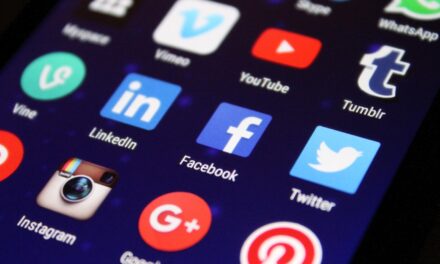Michelle McLeod and Helen Chomczuk on Baillie Gifford’s sponsorship of the Edinburgh International Book Festival

Baillie Gifford is an Edinburgh-based global asset manager that has sponsored the Edinburgh International Book Festival since 2001. Alongside their notable Baillie Gifford Prize for Non-Fiction, the partnership endures as an active example of how best to support cultural events. In this interview, we spoke with Michelle McLeod, Sponsorship Manager at Baillie Gifford and Head of Development of the EIBF, Helen Chomczuk. The topic: why this partnership works and what others can learn.
How did Baillie Gifford’s partnership with the Edinburgh International Book Festival come about 22 years ago and what do you see as its intended goals?
Michelle: It started off as part of our corporate social responsibility approach. The Edinburgh International Book Festival (EIBF) was one of our local arts organisations supported as part of our philanthropic activity, we support a lot of the arts. The relationship has evolved over the years into something much bigger becoming part of marketing through sponsorship.
In terms of sponsorship, we're completely aligned with literature. For the last 15 years, we've been supporting festivals across the UK and have expanded to cover North America and Asia. We also have The Baillie Gifford Prize for Non-Fiction - the largest of its kind in Britain. It's always been a genre of the art that we believe in, allowing us to support thought leaders, academics, and big thinkers who write nonfiction. They’re people that we're interested in learning from. Moreover, the audience that attends book festivals are very closely aligned with the type of people who invest in our funds. We look at it from two angles: what we can gain from an investment research perspective, and also engaging with an audience with a similar profile to our retail clients.
What do you think the benefits are to sponsorship of such an important cultural event?
Helen: I can't overstate the generous financial support enough. It has enabled us to expand and scale up our work at an extraordinary level. We really want to make sure that we're providing great experiences for young readers, so it's really important that we have Baillie Gifford’s backing to begin that process on our side. Many of the people who come to our public children's program are from fairly affluent families, so it’s important from our perspective that we are reaching out to children who might not come, who might not automatically be brought by their mums and dads or their family unit. I have to say thank you to Michelle because Baillie Gifford and the festival have been able to make it totally free. We’re now also able to offer a free book related to the event that the kids are coming to, to every person who attends an event in the school's program. It’s just been phenomenal.
Michelle: At the venue itself, our branding talks about who we are, our curiosity about the world, the thinking, and what our world looks like. It's all illustrated, so it fits in with the environment. As Helen mentioned, we support the schools and the children's program because these are our thinkers, our readers, our writers and our workforce of tomorrow. We create our own artwork, which brightens up the children’s area and while it doesn't necessarily carry any of our branding, it's a project that our internal designers get to work on. From a staff perspective, that adds something different to have fun with and use their creativity.
Have the internal benefits been there since inception, or have you learned to leverage them over time?
Michelle: We've always had staff engagement in terms of ticket allocation, but that has grown over the years. Last year, we had a much bigger engagement coming back from the pandemic, where we really wanted to encourage staff back to the festival. It's always a really popular event in our calendar each year. We also cover the more academic events going on that the investors go to. Then we have a lot of authors that come into the office for private events with our staff.
This is a question for both of you. How do you think this partnership has broadened or changed perceptions of your respective brands across 22 years?
Michelle: You'd have to ask the audience, but one thing that I’m certain has come across is that we're aligned with literature. It's one thing that we are known for in the UK, particularly. We want people to recognize us as an intelligent business, a business that is interested in the world and wants to know what's going on in the world. That happens predominantly through our own magazine, so we don't go out and promote Baillie Gifford as such and all our branding encourages engagement with our magazine Trust. It’s our way of introducing our investment philosophy and our culture and what we're all about and that lands really well. This partnership on top of that adds so much weight to our core values in terms of perception.
Helen: I would add from the festival’s perspective, Baillie Gifford is a very generous company who support a lot of local causes. You’re also quite understated - your sponsorship is never plastered all over things. Perception is built in a very consistent and quite gradual way. For us, it lends weight to the festival that Baillie Gifford has been a partner and supported us for such a long time. In terms of that long term investment approach, a perception of endurance and commitment is central to your business. In the last few years where the pandemic changed our approach, we had to do a lot of things quite differently. Frankly, from a sponsorship benefit point of view, we weren't able to do everything that we had said that we could do, but that hasn't affected the sponsorship.
Baillie Gifford stuck by us and helped. We really appreciate that loyalty. The audience is certainly people who are local to Edinburgh and who maybe have knowledge of the business community here. It's a partnership that from that brand association point of view that both we and the community constantly see the benefits of.
Michelle: I agree, because we are long term investors. That's our strategy and most of our sponsorships are over 10 years old. Like Helen says, it's not all about instant, massive impact that we're looking for through our relationships. We have the same values and are authentic in what we’re supporting. If you come into our offices, there's books everywhere. We've got our own library and books are very accessible to staff and we encourage staff to learn from books. Over the pandemic, we started up our own book festival internally which came from our literary partnerships, Beyond Words, which was focused on diversity and inclusion and that was a collaboration with our HR Department.
Have you been able to measure any response to the partnership itself in terms of public response?
Michelle: I always have a bit of a challenge with some of the metrics around sponsorship. I think you have to look at return on objectives before return on investment, because the latter is so hard to track. We do look at the metrics, but we think qualitatively about the relationship and the culture we’re fostering. We look at all the stats, but actually it's the stuff that we can bring to the festival that is far more powerful for us. The festival does have a survey, however.
Helen: Yeah, we do. So, we do a post festival survey that gets opinions on a range of things, including sponsor brand recognition. Baillie Gifford is consistently up there as one of the most recognised - 70% of people who come to the big events recognise Baillie Gifford as a sponsor. Over 5,000 people take the survey, so it's a sizeable and representative chunk of our audience.
Michelle: It's a strong response because we don't put our logo up very much. We’re conscious that too much branding from one sponsor can push out other sponsors as well.
Do you have any advice for other heads of marketing who are already looking at sponsoring community-focused cultural events?
Michelle: One thing with these events as a corporate sponsor is to remember the art. Leave the art form as it is. Don't get involved in the art form and remember that you’re not the centre stage, so find out how you can be useful. Understand what you're doing and what you're wanting to get out of it and go for something that is authentically aligned to you. If you're authentic about your sponsorship, when something happens like a pandemic, it doesn't matter as much whether your usual assets are getting delivered because you're in it for the long term. It’s all about what your values are at the end of the day. That’s why I’d focus on return on objectives, rather than investment.
Helen: My advice would be around making sure that there's a really wide understanding amongst the whole organisation and your own team around the partnership. Especially in terms of: what are the strategic objectives that we have as a festival, why are we being supported by Baillie Gifford etc. The relationship needs to be supported by everybody within an organisation and a partnership. It won't work if it is just one team who are championing.
Michelle: You get the most amazing projects and initiatives going when you have that relaxed, open, honest relationship. We've obviously had this relationship over a very long time, but it hasn't always been myself and Helen managing the partnership. I'm sure it’ll continue long after I have retired.








